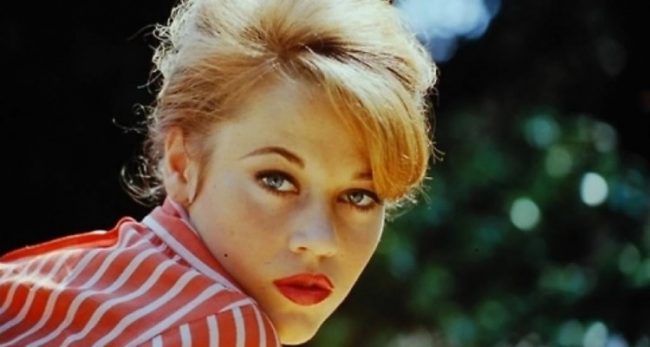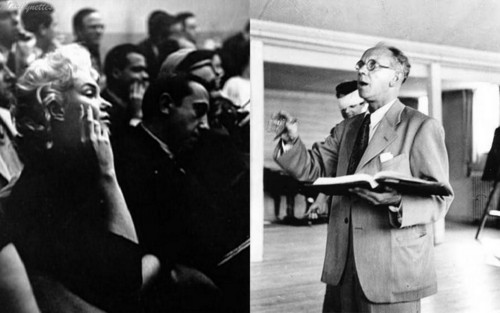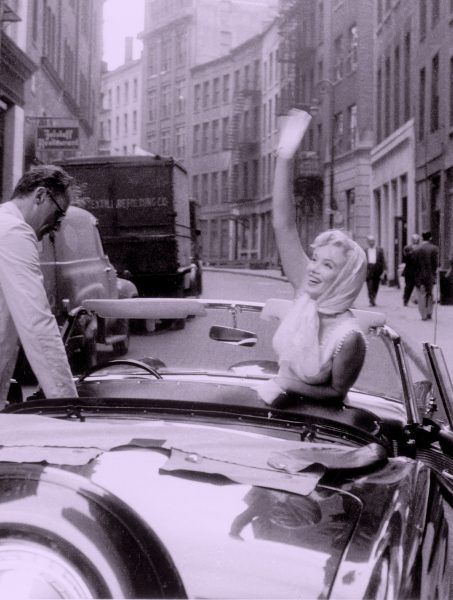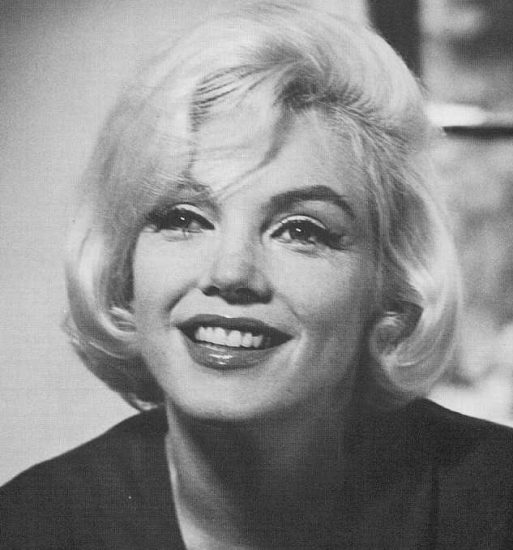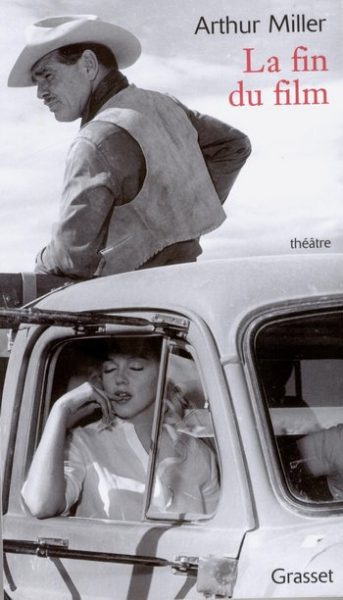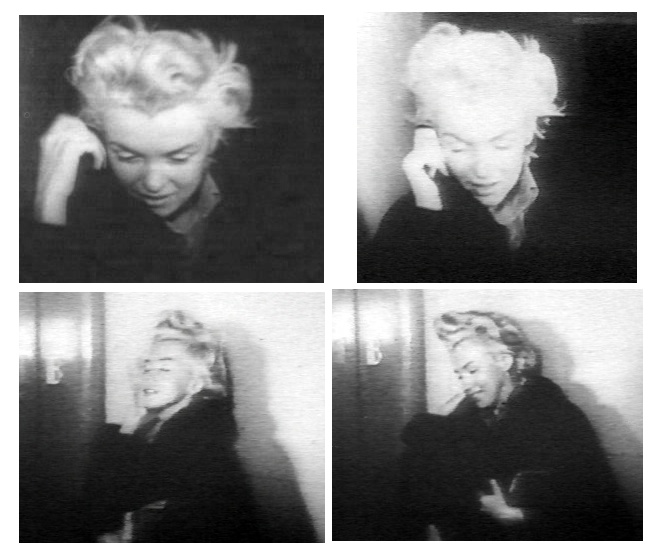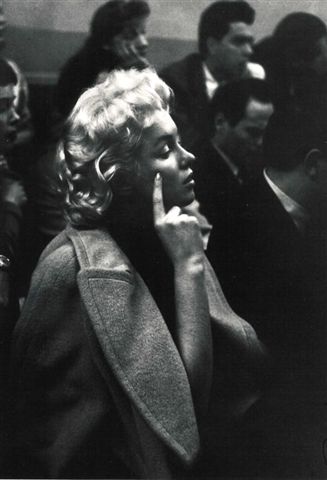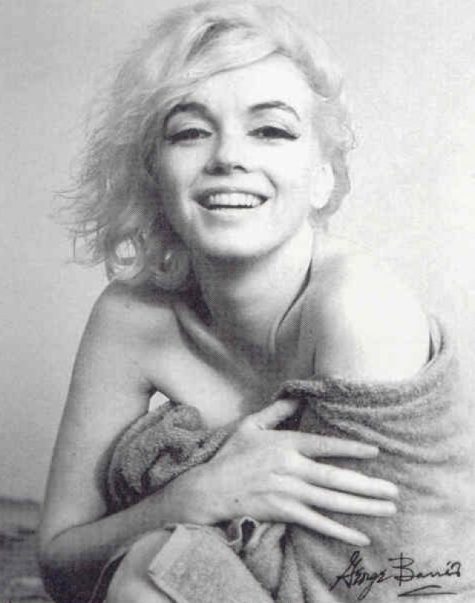This may be an account of a dream. It is filled with characters from Marilyn’s life at the time – Lee Strasberg, Arthur Miller, Milton Greene, Dr Hohenberg, the Rostens – and suggests Marilyn’s intense fear of not living up to their expectations.
Like many of Marilyn’s undefined pieces, it has the quality of a prose poem. The bolded parts denote spelling anomalies, while the crossings-out are her own.
Best finest surgeon – Strasberg
waits to cut me open which I don’t mind since Dr H
has prepared me – given me anesthetic
and has also diagnosed the case and
agrees with what has to be done –
an operation – to bring myself back to
life and to cure me of this terrible dis-ease
whatever the hell it is –
Arthur is the only one waiting in the outer
room – worrying and hoping operation successful
for many reasons – for myself – for his play and
for himself indirectly
Hedda – concerned – keeps calling on phone during
operation – Norman – keeps stopping by hospital to
see if I’m okay but mostly to comfort Art
who is so worried –
Milton calls from office with lots of room
and everything in good taste – and is conducting
business in a new way with style – and music
is playing and he is relaxed and enjoying himself even if he
is very worried at the same time – there’s a camera
on his desk but he doesn’t take pictures anymore except
of great paintings.
Strasberg cuts me open after Dr. H gives me
anesthesia and tries in a medical way to comfort
me – everything in the room is white in fact but I
can’t even see anyone just white objects –
they cut me open – Strasberg with Hohenberg’s ass.
and there is absolutely nothing there – Strasberg is
deeply disappointed but more even – academically amazed
that he had made such a mistake. He thought there was going
to be so much – more than he had dreamed possible in
almost anyone but
instead there was absolutely nothing – devoid of
every human living feeling thing – the only thing
that came out was so finely cut sawdust – like
out of a raggedy ann doll – and the sawdust spills
all over the floor & table and Dr. H is puzzled
because suddenly she realizes that this is a
new type case of puple. The patient (pupil – or student – I started to write) existing of complete emptiness
Strasberg’s hopes & dreams for theater are fallen.
Dr H’s dreams and hopes for a permanent psychiatric cure
is given up – Arthur is disappointed – let down +
